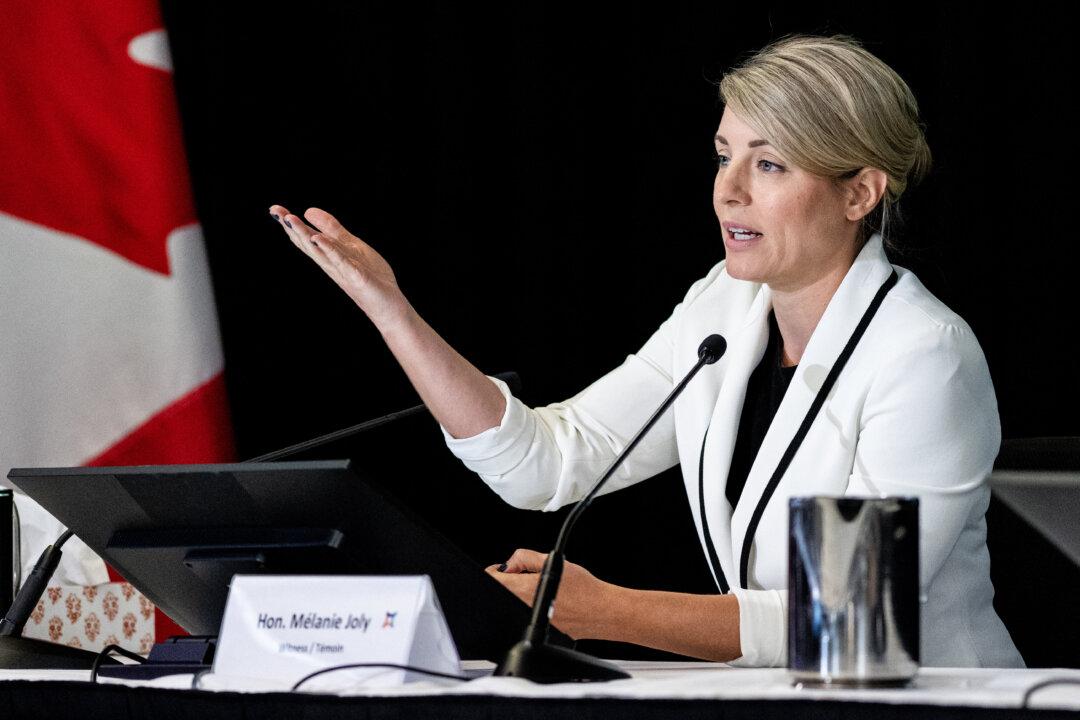Foreign Affairs Minister Mélanie Joly was not briefed on foreign interference conducted by China as she was attempting to rebuild ties with the country, the Foreign Interference Commission heard.
“I was appointed after the return of the two Michaels to Canada, that’s important to understand, because my work is to re-establish a functional relationship with China,” Joly testified to the commission on Oct. 10.





